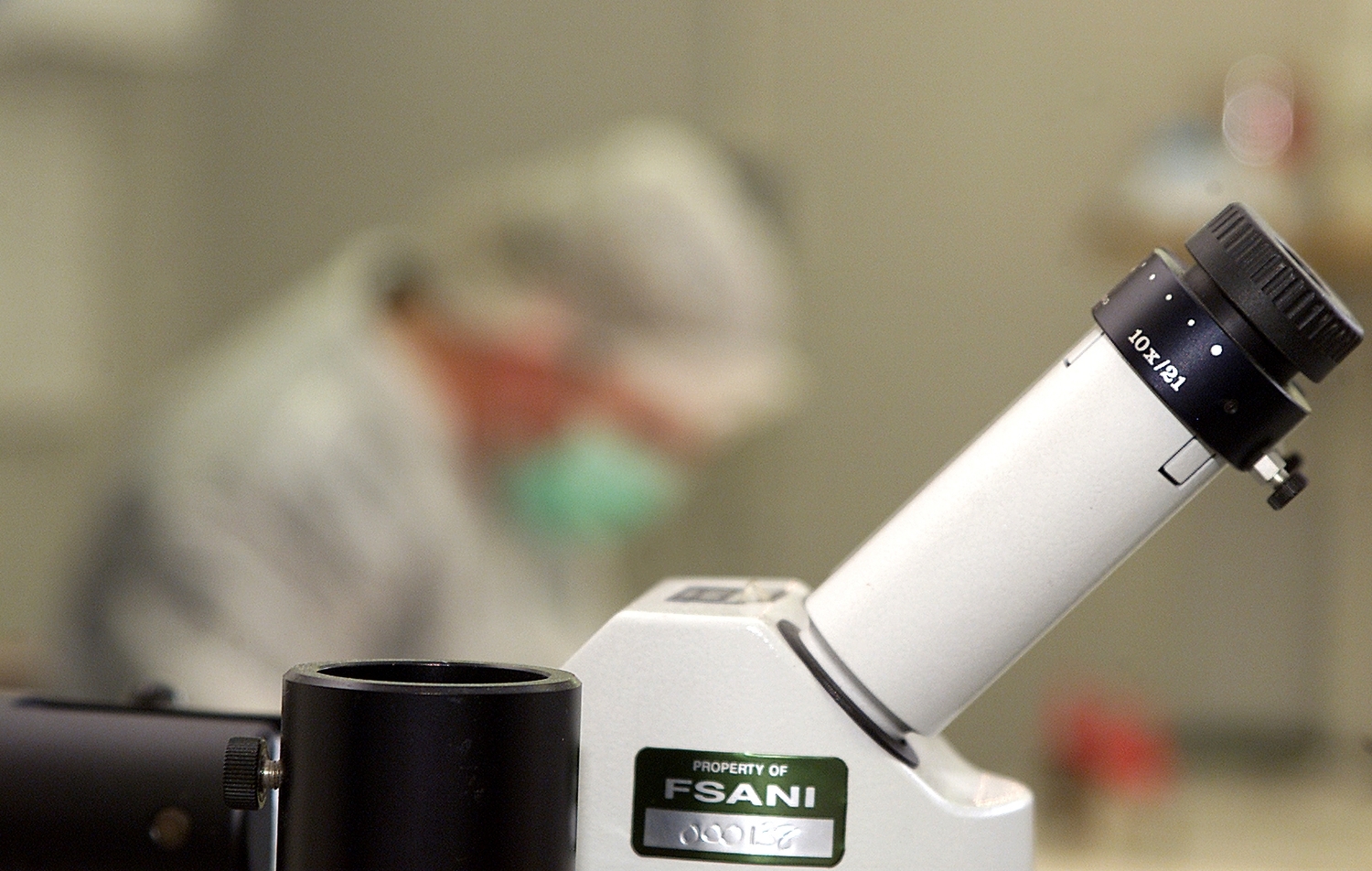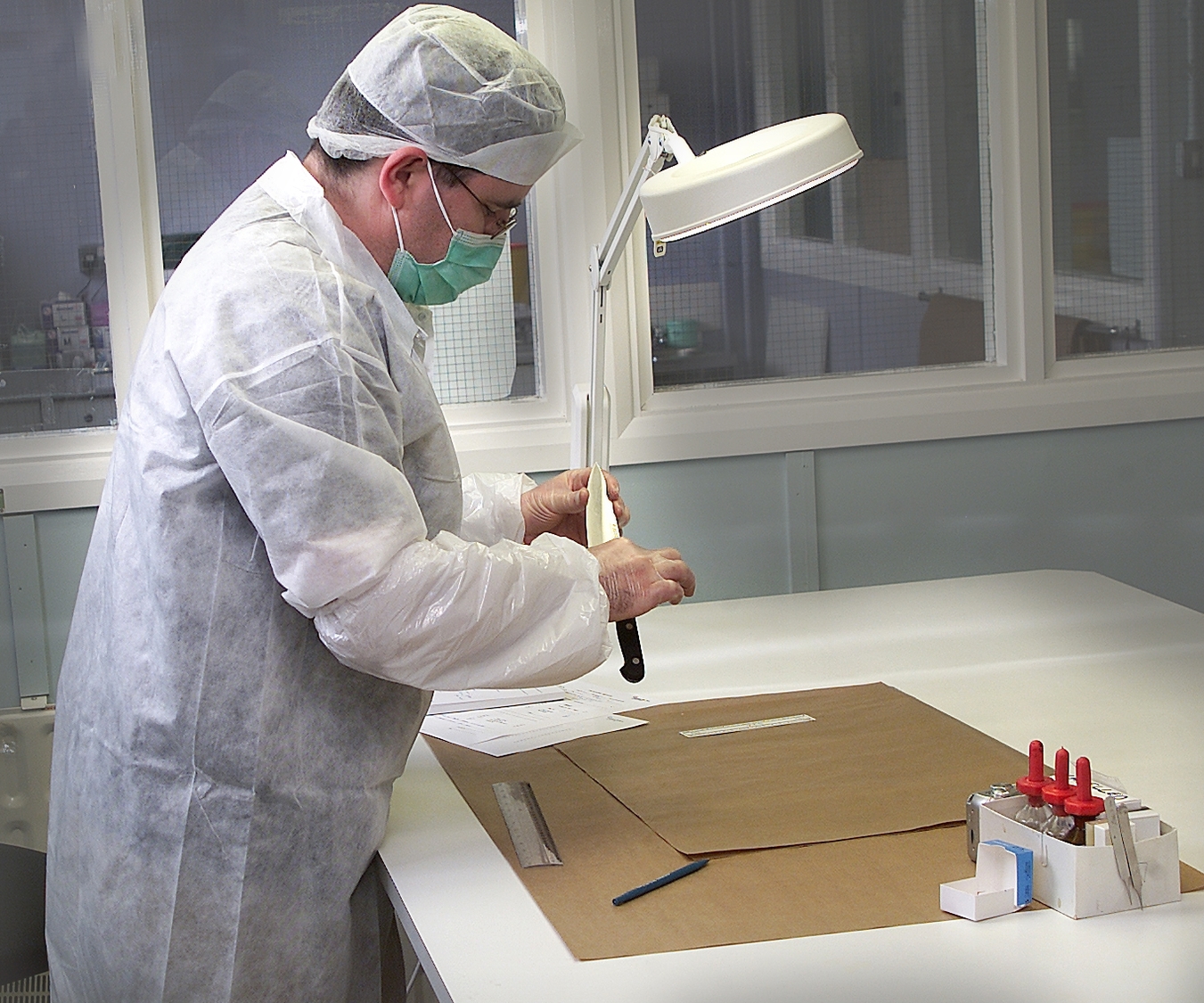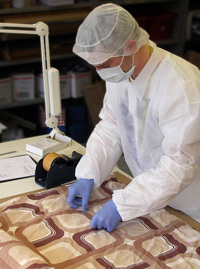FSNI is no stranger to controversy with the quality of its processes having been called into question on a number of previous occasions over the last decade.
Contamination of evidence, pressure from the police to provide results, mix-ups, forged signatures and failure to keep evidence secure are among the issues discovered in recent years.
THE OMAGH BOMB TRIALIn December 2007 the Omagh Bomb trial was informed of an email which the former FSNI chief executive Dr Richard Adams had circulated among colleagues expressing concerns that his fingerprints might be found on the remnants of the bomb’s Timer Power Unit (TPU).
The trial was told that Dr Adams had written to a colleague that he and other unnamed officials had been shown a “bit of TPU box” used in Omagh and, while he could not remember “touching anything”, he added: "but who knows?”
An FSNI official admitted under cross-examination that the incident had shown a “casual approach” to protecting the integrity of forensic evidence in FSNI’s care.
THE ABERNETHY TRIALIn 2003 forensic scientist Ann Irwin told the trial of Noel Abernethy – accused of a shooting at a polling station – claimed police had encouraged scientists to carry out tests on suspects’ clothing, despite knowing that the items could already have been contaminated because of police officers’ own failure to ensure the integrity of evidence.
She said she had refused their requests because she could not have stood over the results.
She further alleged that senior officers had tried to interfere with the work of forensic scientists over a number of years in an effort to cover up police mistakes in a range of criminal cases.
LOSS OF ACCREDITATIONOver the last decade FSNI’s accreditation has been suspended on two separate occasions after auditors uncovered a series of testing “anomalies” which led one inspector to conclude that there was a “very distinct likelihood of a miscarriage of justice somewhere in their system”.
Accreditation for FSNI was first withdrawn in May 2001 after it was found that evidence in one case had been attributed to the wrong suspect.
The error was only discovered when a defence scientist visited the laboratory to inspect the evidence. Investigators found that while the “misreporting of evidence” was not a “frequent event” it was also not an “isolated incident” and had occurred in other areas of the laboratory.
In another incident it was found that the initials of a scientist had been falsified on a document without his knowledge.
The accreditation was reinstated in March 2002.
However, in 2003 more problems at the laboratory led to accreditation being withdrawn for a second time after auditors uncovered more than 400 errors involving paperwork, bar codes and evidence being assigned to the wrong cases.
An official from the United Kingdom Accreditation Service (UKAS), which carried out the audit, wrote: "The continued deficiencies identified by the assessment team clearly indicated that the risk had reached an unacceptable level.
“The laboratory had been given many opportunities to address the issues raised over the past two years. UKAS is fully aware of the implications that suspension brings; it is not a decision taken without full and careful consideration."
THE POLICE OMBUDSMAN’S CASEThen Police Ombudsman Nuala O’Loan wrote to UKAS questioning whether the suspension would impact on work carried out by FSNI on behalf of her office.
Months later the ombudsman raised more concerns after charges against seven police officers were dropped when the veracity of forensic evidence was called into question.
FSNI denied it had made “substantive errors” in its testing.
ALL DNA EVIDENCEAt the time of the withdrawal of accreditation in 2003, auditors found such a “complete breakdown” of systems that a decision was taken to retest all DNA evidence that had ever been tested at the Carrickfergus laboratory.
A UKAS official wrote: "We started with a review of the sample-handling anomaly, which is exceptionally concerning and demonstrates a complete breakdown of their systems for chain of custody, sample continuity and checking from sample receipt to production of witness statement.
“I feel that there is a very distinct likelihood of a miscarriage of justice somewhere in their system.”
External auditors were subsequently brought in to inspect every DNA case which had been tested at the laboratory since 1997.
“The first phase of the audit will cost £10,000 just for two years of DNA cases so if they need to extend this to other evidence types or time-scales the costs will skyrocket,” the UKAC official stated.
“They have identified at least one anomaly in a drugs case so it seems likely that other cases will have been affected.”
FSNI accreditation was not reinstated until 2005.
In 2009 an inspection review of FSNI found that many of the weaknesses which had been identified four years earlier remained in place.
An FSNI spokesman defended the agency’s record, stating that it was regularly inspected to ensure it met UK and European quality standard accreditation.
The spokesman said the agency was “acutely aware” of the need to provide an efficient service to the justice system.
“This happens in all but a small number of cases,” he said.
“Over the past year, FSNI produced almost 9,000 individual forensic reports.
“On average, under 2% of reports would be completed outside the agreed deadline.”
The spokesman said FSNI was attempting to make the best use of resources, despite added pressures as a result of a number of recent high profile dissident republican and criminal cases.
“In the short term, work is ongoing to improve the efficiency of case prioritisation within and between the various Criminal Justice Organisations (including FSNI) which are involved in the complex, end-to-end, crime scene to court processes and to identify and address the causes of delay, wherever they may arise.
“As far as any delays within FSNI itself are concerned these are being actively addressed by improvement projects and by targeted investment in resources.”
He said plans for a new purpose built headquarters improvements to the agency’s IT system were now “well advanced”.



